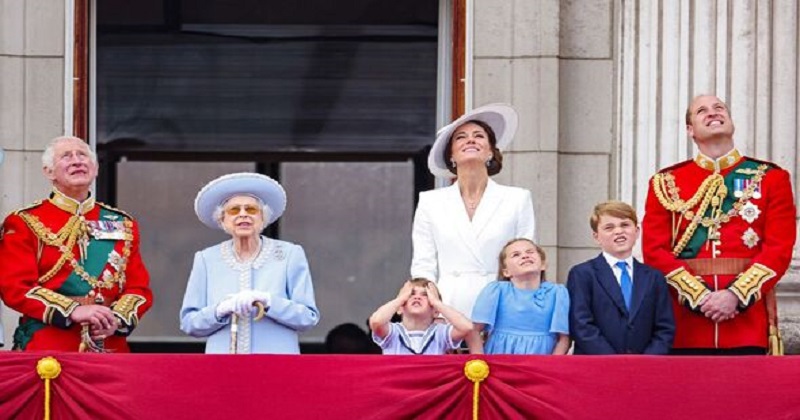
According to local media, a Russian official TV program criticized the Queen’s platinum jubilee, alleging that Britain had ‘found the money for an elaborate celebration’ in the midst of an oil crisis. As per a bulletin carried by the Kremlin-affiliated network Rossiya 1, the event was only a distraction from Downing Street party scandals and a decrease in living conditions as a result of Russian sanctions, according to the Daily Mail.
‘The reign of Elizabeth II has witnessed the eventual fall of the British empire,’ according to the news station. Former Caribbean colonies have taken an anti-British posture, as per Rossiya-1, with demands for apologies and compensation for slavery. ‘ The imperial functions of the Anglo-Saxon globe long since went to the United States,’ it continued, ‘even though Boris Johnson is attempting to resurrect British dominance on the European continent by aggressively participating in events in Ukraine’.
‘The goal is to divert attention away from domestic issues such as Downing Street parties during the lockdown and a general decrease in living conditions’. The UK has been experiencing one of its greatest energy crisis, with surging gas prices due to strong demand as economies reopened from pandemic lockdowns and a supply crisis caused by the Russia-Ukraine war. Even though the United Kingdom is less reliant on Russian gas supplies than other European countries, its gas sources have become more expensive as a result of the war.
Russia delivers almost one-third of Europe’s gas through a complicated network of pipelines that connect Ukraine, Belarus, and Poland to Germany. Pipelines go from Germany to the rest of Western Europe and on to the United Kingdom. The North Sea supplies around half of the UK’s gas needs, with Norway providing the other third. The remainder is imported via pipelines that link the United Kingdom to Europe.
Because the UK market is tightly linked to markets in Europe, a price increase in Germany or the Netherlands would have a cascade impact on Britain. Soaring gas and power rates have left millions of people facing the biggest cost-of-living crisis in 30 years. At the beginning of April, the country’s energy regulator, Ofgem, increased its pricing limit — the most suppliers may charge consumers per unit of energy — by a startling 54%, boosting energy bills for about 22 million homes to around £2,000 ($2,616) each year. The cap is anticipated to rise considerably higher in October, causing even more agony for consumers.

Post Your Comments